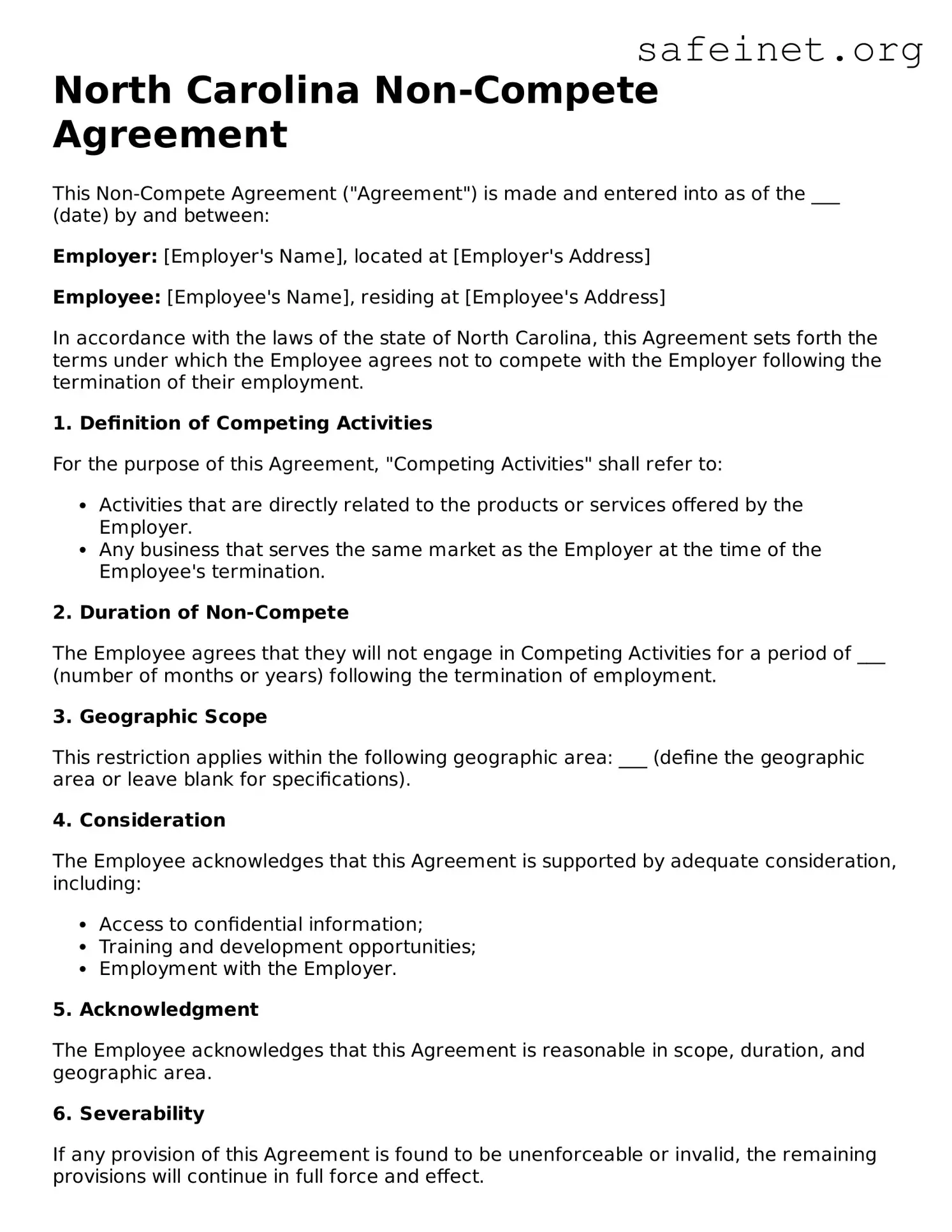What is a Non-compete Agreement in North Carolina?
A Non-compete Agreement is a contract between an employer and an employee. It restricts the employee from working in similar businesses or starting a competing business for a specific period after leaving the company. This agreement aims to protect the employer's interests, including proprietary information and client relationships.
Are Non-compete Agreements enforceable in North Carolina?
Yes, Non-compete Agreements can be enforceable in North Carolina, but they must meet certain criteria. The agreement must be reasonable in terms of time, geographic area, and the scope of restricted activities. Courts will evaluate each agreement on a case-by-case basis.
What is the maximum duration for a Non-compete Agreement?
While there is no strict maximum duration defined by law, non-compete agreements in North Carolina are typically considered reasonable if they last for one to two years. Longer periods may be challenged in court. The reasonableness will be assessed based on the specifics of each situation.
Can I challenge a Non-compete Agreement?
Yes, you can challenge a Non-compete Agreement if you believe it is overly restrictive or unreasonable. Legal grounds for challenging the agreement include lack of consideration, vague terms, or if the restrictions do not serve a legitimate business interest.
What factors determine if a Non-compete Agreement is reasonable?
The reasonableness of a Non-compete Agreement is evaluated based on three key factors: the duration of the non-compete period, the geographic area covered by the agreement, and the nature of the restricted activities. All factors should be balanced to protect the employer's interests without unfairly limiting an employee's ability to work.
Is there a specific format for a Non-compete Agreement?
While there is no specific format mandated by law, a Non-compete Agreement should clearly outline the terms, including restrictions, the duration of the agreement, and any geographical limitations. It should be well-drafted to avoid ambiguity.
What happens if I breach a Non-compete Agreement?
If you breach a Non-compete Agreement, your former employer may seek legal recourse. This could involve filing a lawsuit seeking damages or injunctive relief to prevent you from competing. Consequences can vary based on the circumstances and specifics of the agreement.
Do I need a lawyer to draft a Non-compete Agreement?
While it's not legally required to have a lawyer draft a Non-compete Agreement, it is highly recommended. Legal counsel can ensure that the agreement is enforceable and tailored to meet the specific needs of your business. Proper legal guidance can help prevent future disputes.
Can a Non-compete Agreement restrict my ability to work in any job?
No, a Non-compete Agreement should not prevent you from working entirely. It generally only limits you from working in competitive positions or starting a competing business within the defined terms of the agreement. Employment in non-competing roles should remain available to you.
Is there a way to negotiate a Non-compete Agreement?
Yes, negotiation is possible before signing a Non-compete Agreement. Employees should feel empowered to discuss terms that seem overly restrictive or unclear. Communication with employers can lead to adjustments that make the agreement more reasonable for both parties.
